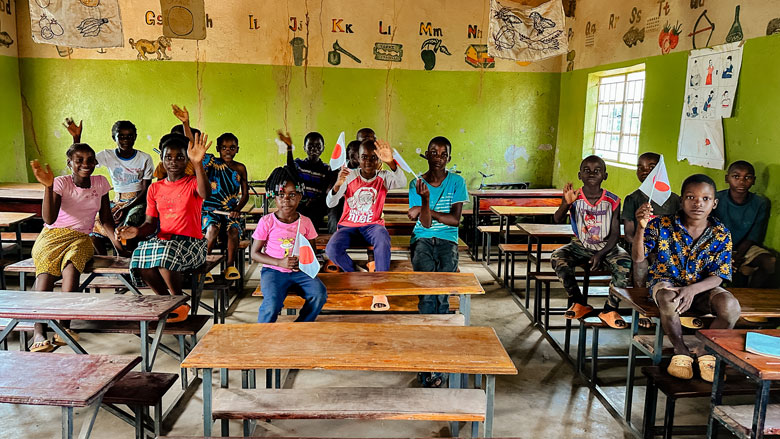In rural Zambia, parents are no longer silent spectators—they are holding school leaders accountable, tracking budgets, and even building school buildings with their own hands. Meanwhile, in Kenya, a Japanese road repair technique isn't just fixing potholes— it is launching business, keeping kids in school, and turning unemployed youth into entrepreneurs.
Two countries. Two very different challenges. But one powerful truth: when communities take charge, real change happens.
With backing from the Japan Social Development Fund (JSDF) and the World Bank, these initiatives are proving that grassroots action paired with smart investments result in lasting impact.
Zambia: From watchdogs to changemakers, parents lead the way in education reform
In Zambia’s remote districts, a quiet but powerful transformation is unfolding. Parents and community members are advocating to ensure that children not only attend school—but thrive there. They are monitoring expenditures, reducing absenteeism, and even pooling their own resources to fund improvements.
The secret? The Voice and Accountability: Community Empowerment for Improved Local Service Delivery project that armed more than 84,000 citizens—half of them women—with skills in social accountability tools such as community scorecards and public expenditure tracking.
With this training, community social accountability committees are tracking school grants and budgets, monitoring textbook and desk deliveries, reducing teacher and learner absenteeism, and even overseeing school construction projects.
“School facilities and resources have improved with the enhanced community engagement,” says William Banda, Head Teacher, Tafera Dziko Primary School. “There are three toilets that were built through community participation, and we have more than 300 desks. As a school, we have benefited so much.”
The results of this community engagement are tangible:
- School enrollment is up—more kids, especially girls, are staying in class.
- Teen pregnancies are down—safer schools mean fewer dropouts.
- Communities stepping up—from playgrounds to savings groups, locals are organizing.
Reduced absenteeism among both students and teachers, increased enrollment, and even a drop in teenage pregnancies, these improvements stem from enhanced teacher accountability, stronger communication between parents and schools, and a growing community understanding of the importance of keeping children—especially girls—in school.
Yet the benefits extend beyond the education sector. Community ownership is encouraging wider civic engagement and empowering women in meaningful ways. In Kafunka, for instance, women from the social accountability committee established a savings group that funds community initiatives and strengthens the long-term sustainability of the committee’s work. Communities have gone so far as to construct playgrounds and dormitories using their own resources—efforts that have helped improve safety, reduce early pregnancies, and support regular school attendance.



